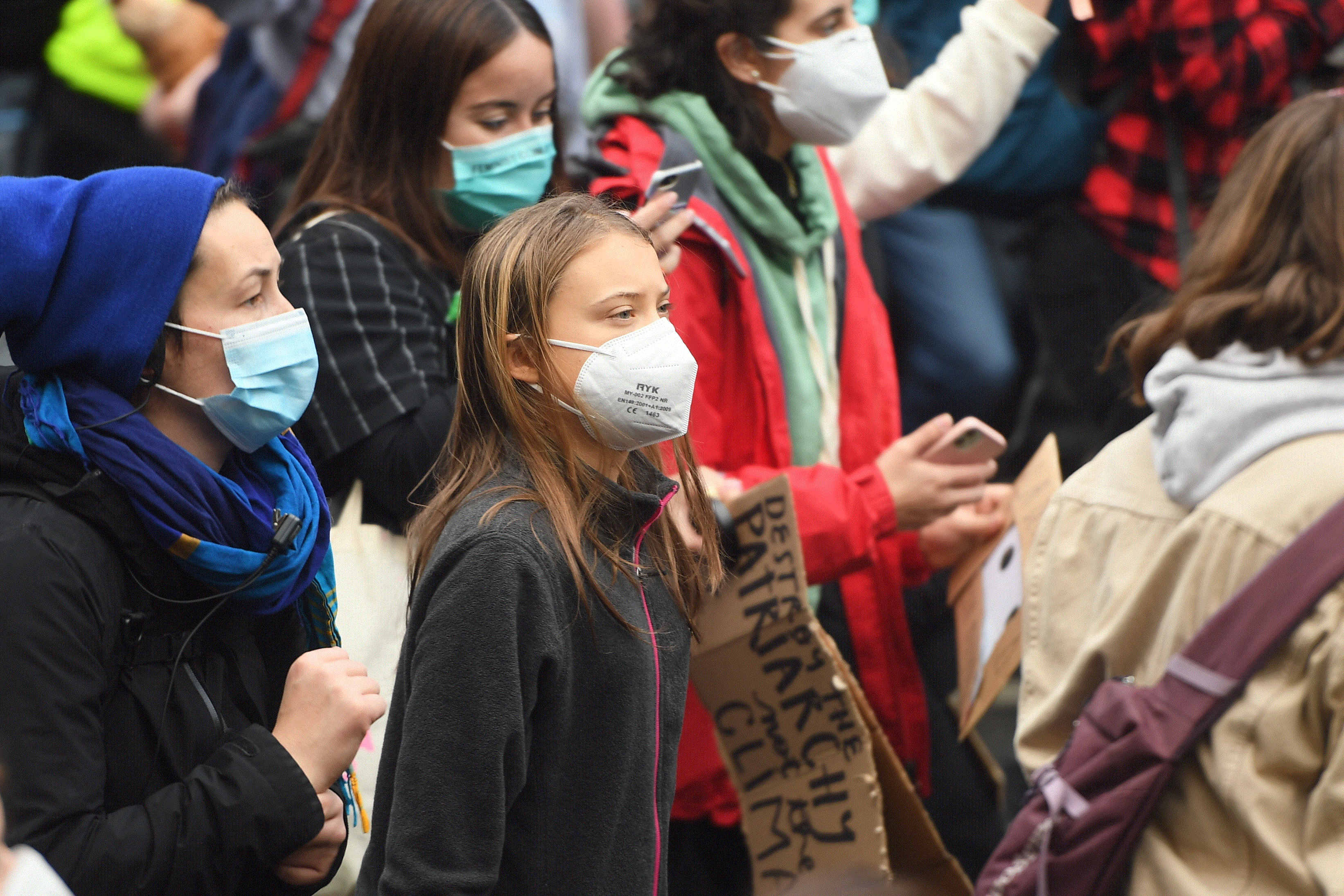In the quest for civic success stories, the very last place to look might appear to be climate news. The best efforts of the United Nations Climate Change Conference will not be enough to avert the worst effects of warming, scientists say.
Little wonder youth climate activist Greta Thunberg has dismissed the COP26 global summit in Glasgow as "a green wash festival" and "a failure." But the derision of Thunberg and thousands of other young COP26 protesters is precisely what makes the summit a potential turning point. Shifting politics and coalitions, new players and new narratives all cut against the inevitable parade of stories predicting climate doom.
Here are a few pieces of good climate news worth noting, for the sake of building the political will to press ahead with the real solutions that remain within reach. As former President Barack Obama cautioned at the summit, even as he acknowledged that the future can look bleak, "cynicism is the recourse of cowards. We can't afford hopelessness."
The politics of hope
Scientists have been the first to throw cold water on the lofty pledges made in Glasgow, pointing out that world leaders' commitments to zero out emissions are not ambitious or immediate enough to limit warming to 1.5 degrees Celsius, or 2.7 degrees Fahrenheit. That is the target considered essential to avoid disastrous sea-level rise, heat waves and ecosystem collapse.
Yet even scientists have derived hope from changing climate politics. At the first U.N. climate summit in 1995, The Washington Post noted, Green parties were written off as fringe activists. Green parties in Europe are now mainstream, having won about 10 percent of seats in the European Parliament's most recent elections. In the United States, 60 percent of people now call climate change a major threat, a near-20-point shift since 2013.
Today, as the world reels from unrelenting natural disasters, "no one is questioning the science, no one is questioning that the crisis is happening," Annika Hedberg, who leads sustainability research at the European Policy Center, told The Post. "The debate is around what can be done and at what speed. This is a positive thing — we're not questioning the science but the measures."
Youth power
Youth climate activists' speeches were "the best part"of the COP26 summit, according to the sustainability news site Green Matters, and arguably the most important. Youth activists who made their voices heard in Glasgow included Mikaela Loach, a U.K.-based activist who said climate and justice cannot be separated, Vanessa Nakate, who described how decreased rainfall has devastated crops in her native Uganda, and Kenya-based Elizabeth Wathuti, who warned that Africa's deadly heat waves, wildfires and floods are just beginning.
All three dramatized their stories with emotional appeals, a tactic that legendary conservationist Jane Goodall calls crucial to environmental activism. "Being angry and pointing fingers, you won't get anywhere," Goodall has said. "You just have to reach people's hearts. And the best way I know is to tell stories. My job now is to try and help people understand every one of us makes a difference. And cumulatively, wise choices in how we act each day can begin to change the world."
A commanding coalition
Young people may have the most at stake in the climate debate — the average 6 year old will live through triple the number of climate disasters as their grandparents, a recent study found — but they were hardly the only ones protesting in Glasgow. Indeed, the climate movement is becoming a political force building coalitions across causes from economic inequity to civil rights.
The estimated 100,000 protesters who gathered in Glasgow were joined by activists in Paris, London, and some 200 other locations around the world. Among the most visible and vocal were youth activists with "Fridays for Future," the international movement built around school walkouts launched by Thunberg when she was just 15. But now Thunberg is 18, and she and her fellow students are poised to win fresh influence as adult voters and soon-to-be influence leaders.
And as the climate movement comes of age, it is becoming something of an umbrella campaign for a broad array of progressive causes. Activists in Glasgow included Black rural residents in Brazil concerned about how mining is affecting indigenous communities, vegan activists and social justice advocates opposed to police brutality.
A potent partnership may be emerging between climate activists and labor organizers, who have gained new leverage in this season of strikes and wage demands. Stuart Graham, a Glasgow trade union official and one of the protest organizers, told The New York Times that his top concerns include improving the city's housing stock and boosting free public transportation. "It's critical that we have a civil society with a powerful voice to hold these leaders to account," Graham said.
The shared interests of environmental and labor activists may hold the key to whether global leaders step up the pace on climate action in time to avert disaster. Too often, environmental debates have descended into fights over jobs versus conservation. Obama urged protesters in Glasgow to "stay angry," but also to "build the broad-based coalitions necessary for bold action." The Glasgow protests, in a final bit of good news, hint at the potential to bridge the longstanding worker-environmentalist divide.




















Trump & Hegseth gave Mark Kelly a huge 2028 gift